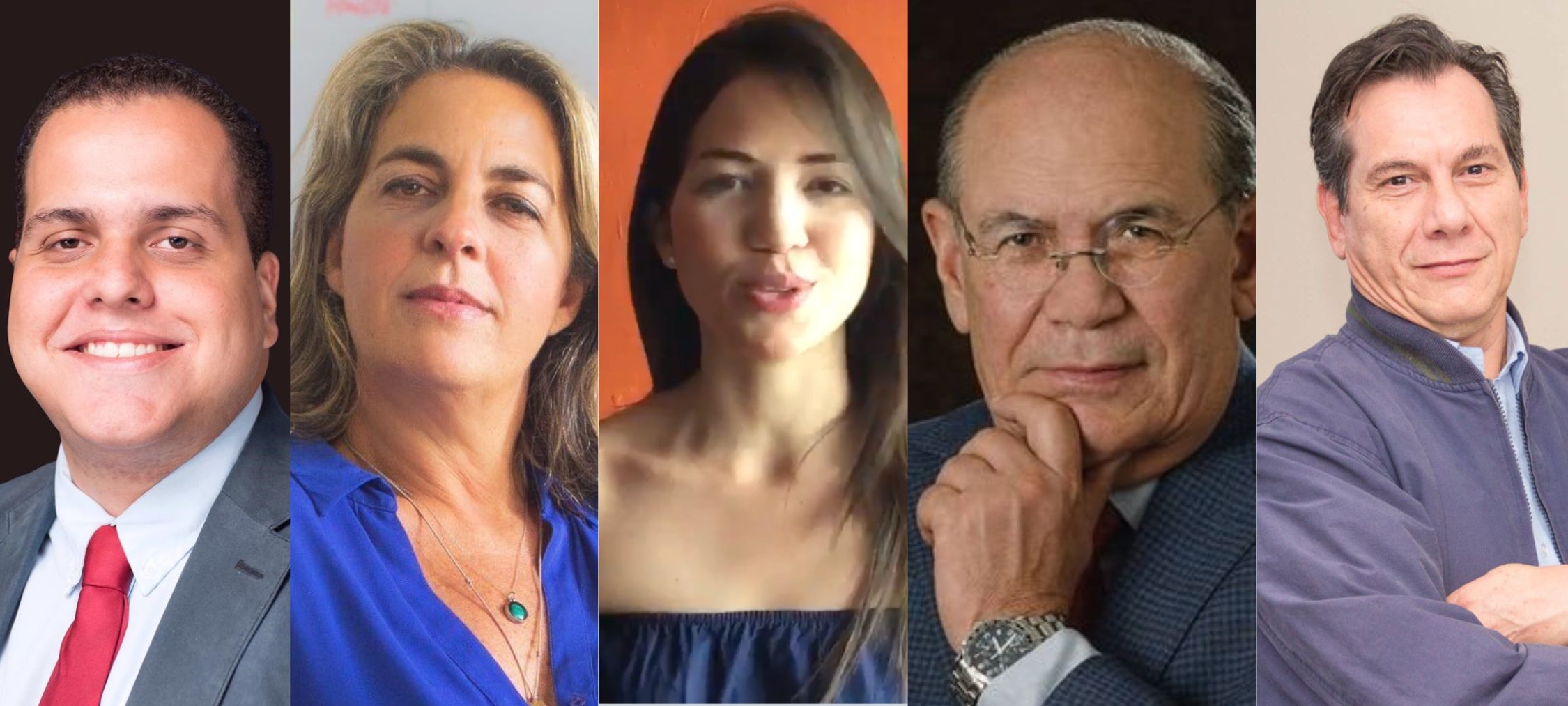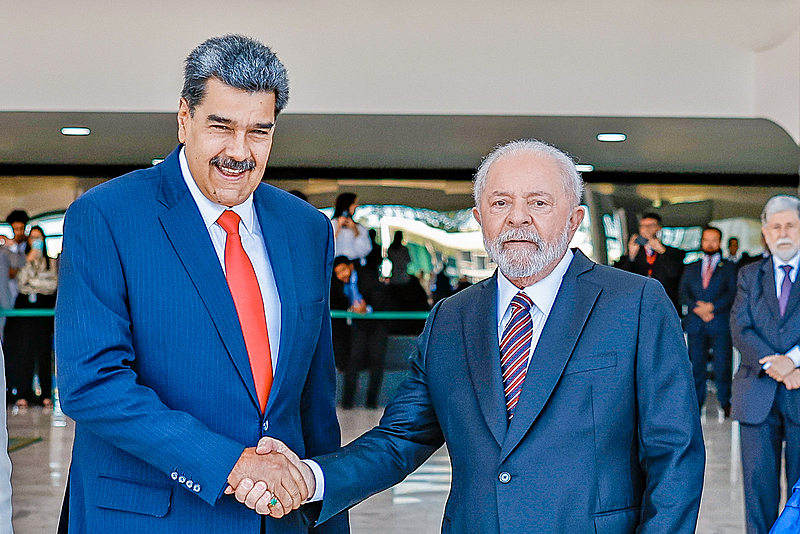Opposition show at the Argentine embassy in Venezuela
Marcos Salgado
The situation surrounding the opponents lodged in the Argentine embassy residence in Caracas returned to the media and to the schizoid trendings of social networks on Friday night. What is really known beyond the campaigns and expressions of desire.
On Friday night some of the members of María Corina Machado’s political group, Vente Venezuela, staying at the residence of the Argentine embassy in Lomas de las Mercedes, south of Caracas, tweeted that “hooded and armed officials surround and besiege the Argentine residence in Caracas”. So wrote Pedro Uchurrurtu, one of the asylum seekers, at around 8:30 pm.
This triggered the usual tweeting incontinence, which added salt and pepper to the issue in unguarded doses, to the point of positioning tags such as #ViolacionAlAcuerdoDeViena. Strictly speaking, according to what the same images that the opponents uploaded to their networks show (and were repeated hundreds of times by other ready tweeters), the only thing that can be seen is some kind of police presence in the street, in front of the residence.
Both the residence and the Argentine embassy in Caracas are under the custody of Brazil, from which the Venezuelan government expelled all diplomatic personnel as a protest against Javier Milei’s government’s disregard of the results of the July 28th elections.

And far from decompressing, the government of the Argentine ultra-right wing confirmed in the last hours that it will resume the complaint against President Nicolás Maduro in the International Criminal Court, in the so-called Venezuela 1 Case, and even requested the capture of the Venezuelan president.
Meanwhile, at the residence
The residence of the Argentine embassy is a large lot with only one access, through a narrow, two-way street, which on one side has the buildings and a sidewalk of a few centimeters, and on the other side the emptiness of the mountain. Then, one of the borders of the embassy is with the diplomatic representation of the Russian Federation, the other with a huge unidentified residence, and the backgrounds face, again, the emptiness of the mountain, with a privileged view to the northeast of the valley of Caracas.
Since the opponents -investigated by the Venezuelan Attorney General’s Office- were received there, during the days prior to Easter Week this year (and not after the elections, as La Nación and other media make a mistake) there is police custody day and night at both ends of the narrow street, called Avenida de Las Lomas. The difference is that, on Friday that custody was moved to the very front of the residence, this was enough, according to Uchurrurtu to perceive himself “surrounded”.
With the lights on Saturday, the same photos from inside the residence did not improve the perception of the “siege” sold the night before. Another of the asylum seekers, Magalli Meda, Machado’s campaign chief, tweeted: “Thus dawns the headquarters of the Argentine embassy in Caracas, surrounded by agents of the regime, hooded and armed”.
He tries to certify the alleged siege with three photos: in one, only the Brazilian flag can be seen in an elevated garden, a sort of balcony, of the residence. In another, there are four officers, two of the Bolivarian National Police, with no weapons – neither long nor short – in sight, and two (one of them carrying a long weapon) of the Bolivarian Intelligence Service (SEBIN) leaning with a nonchalant air on a vehicle of the department. They seem to be in front of the residence, but in the street, clearly. And the siege?
And the third photo doesn’t help either. It only shows the activity of the neighbors: two vehicles are seen in front of the Russian embassy and a member of the National Police, who seems to be, precisely, from the diplomatic custody of that embassy.
The show of the networks
It is known that it is only necessary to shoot some photos and give them a certain meaning, so that the networks do the rest. That is how it always happens and that is how it happened last night. There were also those who added some more pepper (it always happens) assuring that Venezuela had cancelled the agreement with Brazil for the custody of the Argentine embassy. Now, yes, the “desired” assault seemed imminent.
Even the Argentinean Minister of Security, Machado’s loyal ally, Patricia Bullrich, assured that this was the case. The paradoxical thing was that it was denied from inside the residence, the same Meda, who reinstated a denial from the Brazilian Foreign Ministry through the Brazilian media.

The truth is that the show of the siege, paid as we saw from inside the embassy, strains the relationship between Brazil and Venezuela. Already complicated by the position of President Lula, who still does not recognize the official result of the July 28 elections, what next? Will Brazil call for due restraint to its asylum seekers so that they do not agitate the waters? Perhaps it will.
*Argentine journalist of the founding team of Telesur. HispanTV correspondent in Venezuela, editor of Questiondigital.com. Analyst associated with the Latin American Center for Strategic Analysis (CLAE, estrategia.la).
